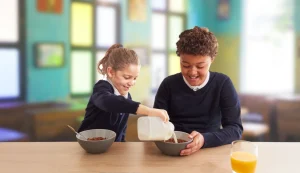With the increasing number of coronavirus cases documented worldwide, schools and educational institutions advise staff and students of effective measures to minimise the virus’s risk.
To reduce the risk to pupils and staff, we’ve outlined our advice for schools with cashless catering systems when practising these prevention methods.
Cleaning cashless catering equipment
The approach to cleaning cashless catering systems is simple and includes using disposable wipes and cleaning solutions from brands such as Dettol to clean the hardware, biometric scanners and kiosks.
Staff should clean these systems at the beginning and end of every day, encouraging pupils and staff who use the equipment and handle food to practise effective personal hygiene methods such as thoroughly washing their hands.
Encourage pupils and staff to wash their hands regularly
Schools need to encourage students and staff to practice efficient hygiene methods for personal safety and reduce infection risk.
Schools should display hand sanitiser units throughout the school and ensure that pupils and staff wash their hands with antibacterial soap and water or hand sanitiser after going to the bathroom, coughing, sneezing, and after sporting activities, before cooking and eating and before leaving home.
Learn more about guidelines from the Government and health professionals for educational settings and advice on proper handwashing techniques for pupils and staff.
When encouraging pupils to practise effective hygiene methods, schools need to maintain regular communication with parents to ensure these methods are being practised at home, preventing dangerous germs and bacteria from entering and leaving home.
CRB Cunninghams will look after your technology
During school closures, the most important thing to do is remain safe. If the cashless systems are left running, we can look after the technology and hardware remotely and ensure that everything runs smoothly.
Teacher Tapp, the app which gathers daily information from teachers on various educational matters, recently found that 43% of secondary and 24% of primary teachers said they could figure out how to remotely broadcast a video lesson for their class in the event of a school closure.
Useful links





